3" snow on the ground at St. Cloud.
41 F. high yesterday in St. Cloud (2:03 AM).
22 F. average high on December 26.
31 F. high at KSTC on December 26, 2015.
December 27, 1982: A snowstorm starts across the state, and ultimately dumps 16 inches in the Twin Cities by the time it ends on the 28th.
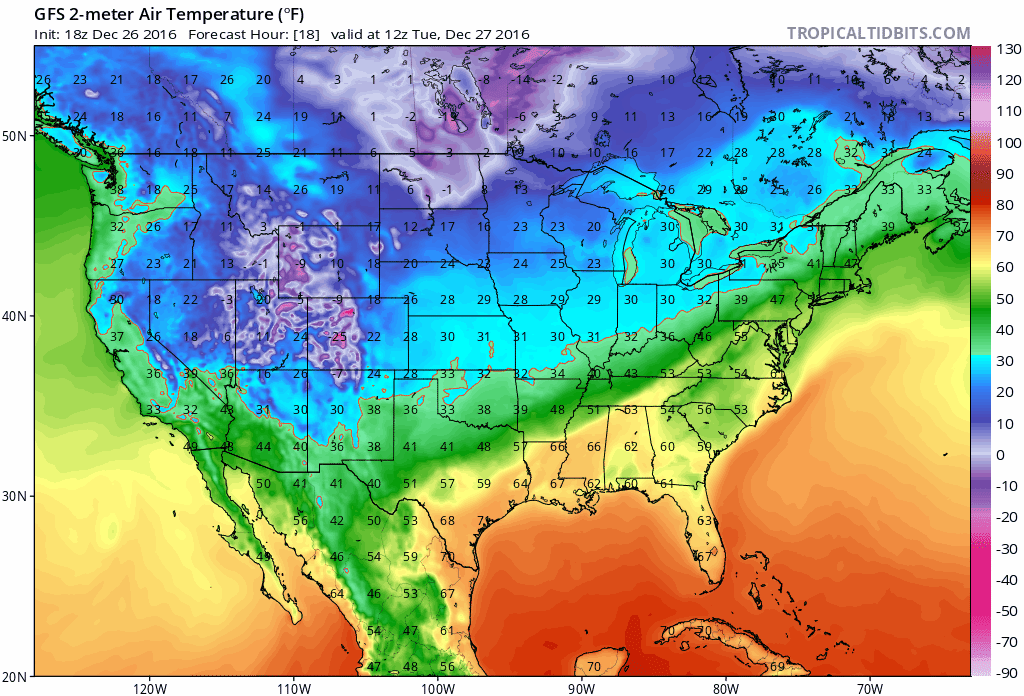
Paul's Prediction: Coldest January In 3 Years
We don't know what we don't know. Science is never "settled" - it's a process. Connect the dots. What does it mean and why should we care?
Last week temperatures rose to 32F at the North Pole; nearly 50F warmer than average. It's still emerging science but some researchers speculate that rapid warming of the Arctic is displacing the coldest air southward - and impacting jet stream steering winds, increasing the potential for bitter outbreaks at lower latitudes.
Wait, arctic warming may increase the risk of Siberian air here at home? Go figure. But big swings in weather are increasing.
With that rambling preamble in mind I'm predicting the coldest January in 3 years. Subzero weather is likely the middle of next week; again mid-January. Each outbreak may bring 2-4 days below 0F. More character-building cold.
A quiet week is shaping up - probably dry for New Year's weekend plans. Models spin up a snowstorm next Monday, followed by more fun with negative numbers.
2016 was the wettest year since 1871 in the Twin Cities with 40.32 inches of water. A warm and soggy year.
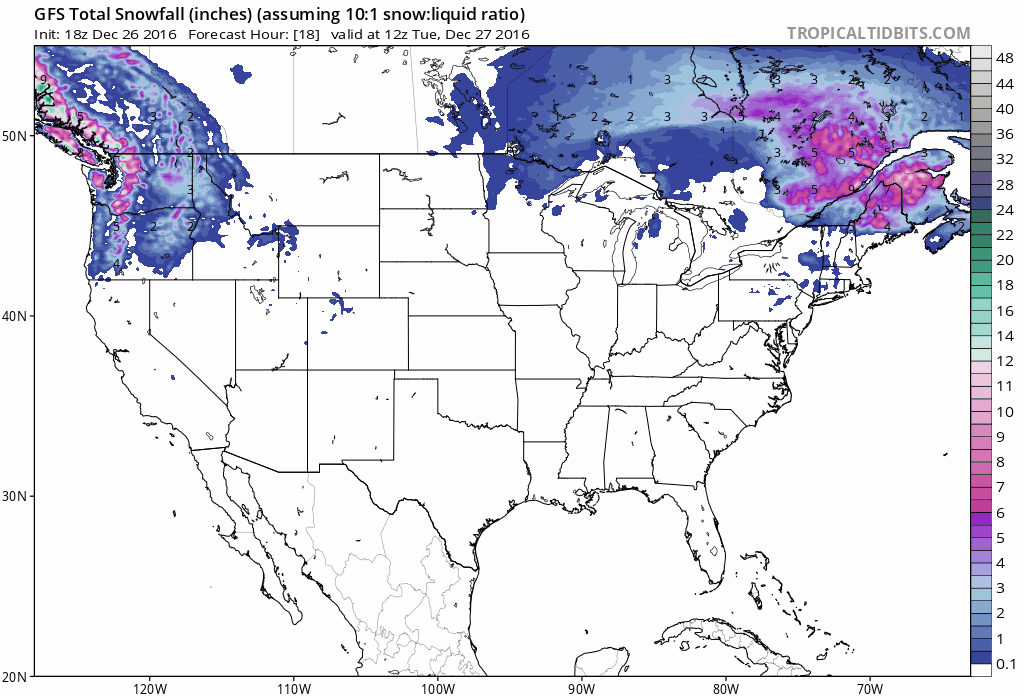
10-Day Snowfall Potential. A couple inches predicted for Denver and major east coast cities (no big coastal storms brewing yet - give it a couple weeks). Over a foot is predicted for the Twin Cities roughly 1 week from today; with heavy snows from Boise to the Cascade Range. GFS guidance: NOAA and Tropicaltidbits.com.
Xcel Energy Flips Switch on New Plant, More Than Doubling Minnesota Solar Energy Generation. Here's an excerpt from Star Tribune: "After
years of talking and planning, solar energy in Minnesota is finally
starting to shine. Xcel Energy last week flipped the switch on the North
Star project in Chisago County, one of the largest solar plants in the
Midwest. It by itself more than doubles the state’s total solar energy
generation. Also this month, Xcel’s promising but much-delayed Community
Solar Garden program is rolling out in a significant way. Around 20
megawatts of solar garden power are online, and up to 35 more megawatts
are expected to be running by Jan. 1. Another large project that will
feed power to Xcel — called Aurora — has been largely energized since
mid-November..."
Photo credit: Brian Peterson, Star Tribune.
Your Future Commute: Flying Through Tubes at 760 mph. Not quite flying cars, but we're getting closer, according to The Washington Post: "Picture
the commute of the future: You live in Palo Alto, Calif., but work 350
miles away in Los Angeles. After your morning latte, you click on a
smartphone app to summon your digital chauffeur. An autonomous car shows
up at your front door three minutes later to drive you to a Hyperloop
station in downtown Mountain View, where a pod then transports you
through a vacuum tube at 760 mph. When you reach the Pasadena station,
another self-driving car awaits to take you to your office. You reach
your destination in less than an hour. That is the type of scenario that
Hyperloop Transportation Technologies (HTT)
chief executive Dirk Ahlborn laid out for me as we were preparing to
speak together on a panel at the Knowledge Summit in Dubai on Dec. 5..."
Worst Evening Rush Hour Traffic In The World? At the top of the list no city wants to be on: Bangkok. CNN.com reports: "Bangkok
has a sparkling metro system, river ferries and even a network of
canals. But it still has the worst evening rush hour traffic in the
world. Journey times more than double in Thailand's capital city during
the evening commute, according to GPS manufacturer TomTom. "It's pretty
extreme," Nick Cohn, senior traffic expert at TomTom, said of the city's
road delays. It might get even worse, especially as the country's
middle class continues to grow..."
The Game of a Lifetime. Check out a story at Wall Street Journal that will restore your faith in humanity; here's the intro: "Like
almost anybody who has picked up a golf club, my stepfather has always
had a fantasy: To play at the Augusta National Golf Club. The legendary
Georgia course is home to the Masters Tournament, and admission is
strictly limited to its closely guarded roster of members and their
invited guests. Neither I nor my stepfather knew a soul there. So when I
said I wanted to surprise him with a round of golf there, everyone I
talked to said it would be impossible. Why would an absolute stranger
invite a 70-year-old suburban Detroit real-estate developer to Georgia
to tee off at one of the world's most secretive and exclusive clubs? In a
season of giving, this is a story of acts of generosity, each one a
little more surprising and heartfelt than the one before..." (Photo credit: augusta.com)
20 of the Prettiest Holiday Light Displays In The World. The Washington Post has the photo essay. Credit: "People
are silhouetted as they walk through a light installation titled
"Universal Journey" composed of 824,961 light bulbs at the Universal
Studios in Singapore." Wong Maye-E/AP.
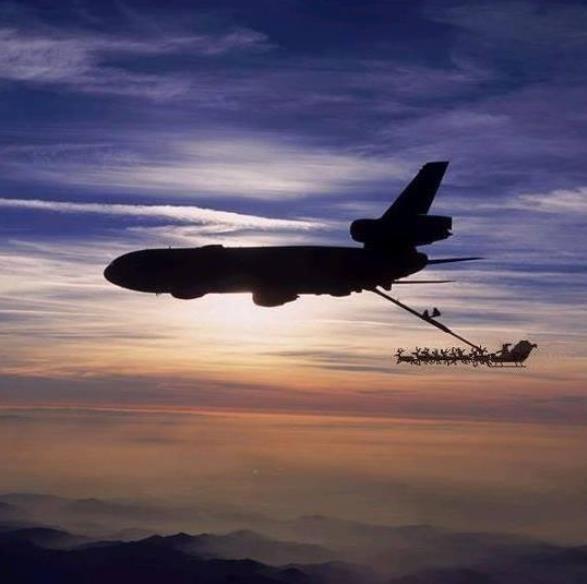
TODAY: Partly sunny, "average" temperatures. Winds: W 7-12. High: 24
TUESDAY NIGHT: Partly cloudy. Low: 20
WEDNESDAY: Mostly cloudy, a little milder. Winds: SW 8-13. High: 34
THURSDAY: Lot's of clouds, few flurries. Wake-up: 24. High: near 30
FRIDAY: Overcast, relatively mild for late December. Winds: S 10-15. Wake-up: 20. High: 31
NEW YEAR'S EVE: Slow clearing, colder wind kicks in. Winds: NW 10-20. Wake-up: 21. High: 29
NEW YEAR'S DAY: Patchy clouds, quiet start to 2017. Winds: SE 10-15. Wake-up: 16. High: 31
MONDAY: Snow develops during the day. Winds: E 15-25. Wake-up: 20. High: 26
WEDNESDAY: Mostly cloudy, a little milder. Winds: SW 8-13. High: 34
THURSDAY: Lot's of clouds, few flurries. Wake-up: 24. High: near 30
FRIDAY: Overcast, relatively mild for late December. Winds: S 10-15. Wake-up: 20. High: 31
NEW YEAR'S EVE: Slow clearing, colder wind kicks in. Winds: NW 10-20. Wake-up: 21. High: 29
NEW YEAR'S DAY: Patchy clouds, quiet start to 2017. Winds: SE 10-15. Wake-up: 16. High: 31
MONDAY: Snow develops during the day. Winds: E 15-25. Wake-up: 20. High: 26
Climate Stories...
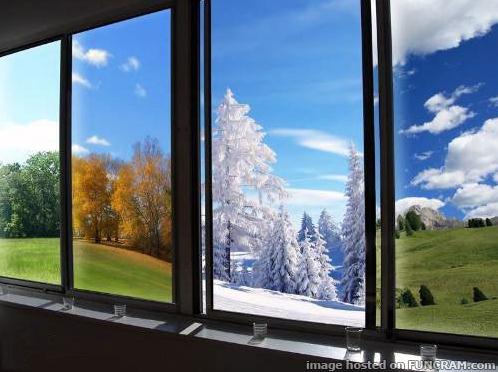
States Will Lead on Climate Change in t he Trump Era. Here's an excerpt of an Op-Ed from the Editorial Board at The New York Times: "State governments will serve as an important bulwark against any attempt by President-elect Donald Trump to roll back the progress the United States has made in addressing climate change. And that’s good news for the planet. Over the last decade or so, most states have reduced their greenhouse gas emissions by promoting energy efficiency and renewable fuels. These trends should continue as clean energy costs continue to decline and, in some parts of the country, fall below the cost of dirtier fuels like coal. The Brookings Institution reported this month that between 2000 and 2014, 33 states and the District of Columbia cut carbon emissions while expanding their economies. That list includes red states run by Republican legislatures, like Alaska, Georgia, Tennessee and West Virginia..."
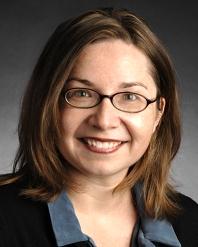
Still So Much Confusion About Weather vs. Climate. Weather is an argument, climate is an entire marriage. Here's an excerpt from Summit County Citizens Voice: "...The study found that Americans who experience more record highs than lows in temperature are more likely to believe the earth is warming. Conversely, Americans who live in areas that have experienced record low temperatures, such as southern portions of Ohio and the Mississippi River basins, are more skeptical that the earth is warming. According to the study, the language of climate communications may be key, with the phrase ‘global warming’ resulting in a cognitive disconnect. That term might have led residents living in areas that experienced an unusually cold winter to doubt that climate change is occurring. “Who do Americans trust about climate change; scientists or themselves?” said Robert Kaufmann, professor in the department of geography and the Center for Energy & Environmental Studies at Boston University and lead author of the paper. “For many Americans, the answer seems to be themselves.” The researchers also found that a recent period of lower-than-average temperatures offset the effect of a long warming period, further supporting their findings that people’s belief in climate change is local and experiential..."
Photo credit: "If it’s hot, it’s global warming, but if not …" @bberwyn photo.
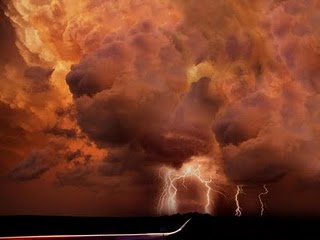
Guest Opinion: Meteorologists Caught Up in Climate Debate. Here's an excerpt of an Op-Ed that resonated from a meteorologist at Mail Tribune in Medford, Oregon: "...There is no massive conspiracy to create and maintain a global warming scare. Hundreds of mature, dedicated, sincere meteorological scientists have worked hard during their entire careers to advance climate science and develop the best predictions. Their work has been critically reviewed for decades by hundreds of their peers - independent scientists - in the domain of open scientific literature. Best available data and computer predictions now indicate that the human race has become capable of inadvertently affecting the global climate. That effect is already apparent, and is now superimposed on natural climate changes that continue to occur. The new global climate will have some destructive characteristics for humans. Our problem now is that human society was constructed to be consistent with the climate of the last few thousand years. The new climate will be different..."
No comments:
Post a Comment